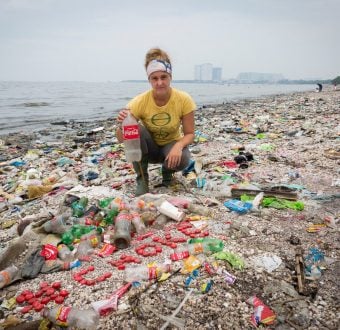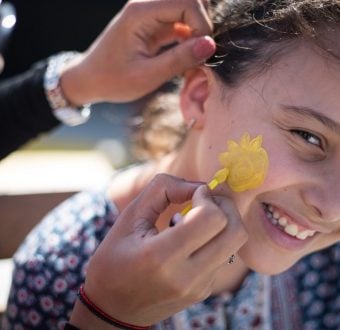Under the banner, “Healthy Homes, Healthy Communities: Building
a
Toxic-Free Future,” Greenpeace began building a house today with
the New Orleans Area Habitat
for Humanity and other groups. The house will be built without
polyvinyl chloride (PVC or vinyl) material or other toxic household
products, and may serve as a model for Habitat homes and
affordable housing around the country.
“Like homelessness, pollution is a global problem — one that
disproportionately affects the poor
and communities of color,” said John Passacantando, Executive
Director of Greenpeace. “This
house will be a testament to two basic human rights: the right
to decent housing and the right to a
healthy environment.
The PVC-free Habitat house is the first project of its kind for
Greenpeace, known for its high-profile
peaceful protests and acts of civil disobedience to draw
attention to environmental crimes.
Already, the house is causing controversy. In late February, the
Vinyl Institute, the trade association of vinyl manufacturers,
wrote to Habitat for Humanity International, criticizing the
New
Orleans affiliate for working with Greenpeace on this
project.
Louisiana has the greatest concentration of PVC facilities.
Toxic pollution from PVC plants has
displaced entire communities and disproportionately affects
low-income and predominantly
African-American towns. Environmental justice advocates and
representatives from communities affected by the vinyl industry
came out to show their support for the project on the first day of
the
build.
The Greenpeace house will use affordable alternatives for vinyl
that are widely available. Also, the
floor system of the house will be built with wood that is not
treated with arsenic (which, until
recently, was commonly used as a preservative) and that is
certified as sustainably harvested. All
of the power needs for the build are being provided by
Greenpeace’s “Rolling Sunlight,” a mobile
solar-powered generator. Construction lasts for four three-day
weekends (except Easter
weekend), ending April 20 — two days before Earth Day — when
the keys to the house will be
turned over to its new owners, Shylia Lewis and her four
children.
Other groups supporting the build
include the Healthy Building Network, Advocates for
Environmental Human Rights, the Deep South Center for
Environmental Justice, the National
Black Environmental Justice Network, the New Orleans Chapter of
the Sierra Club, Mossville
Environmental Action Now, and several local university
organizations.

